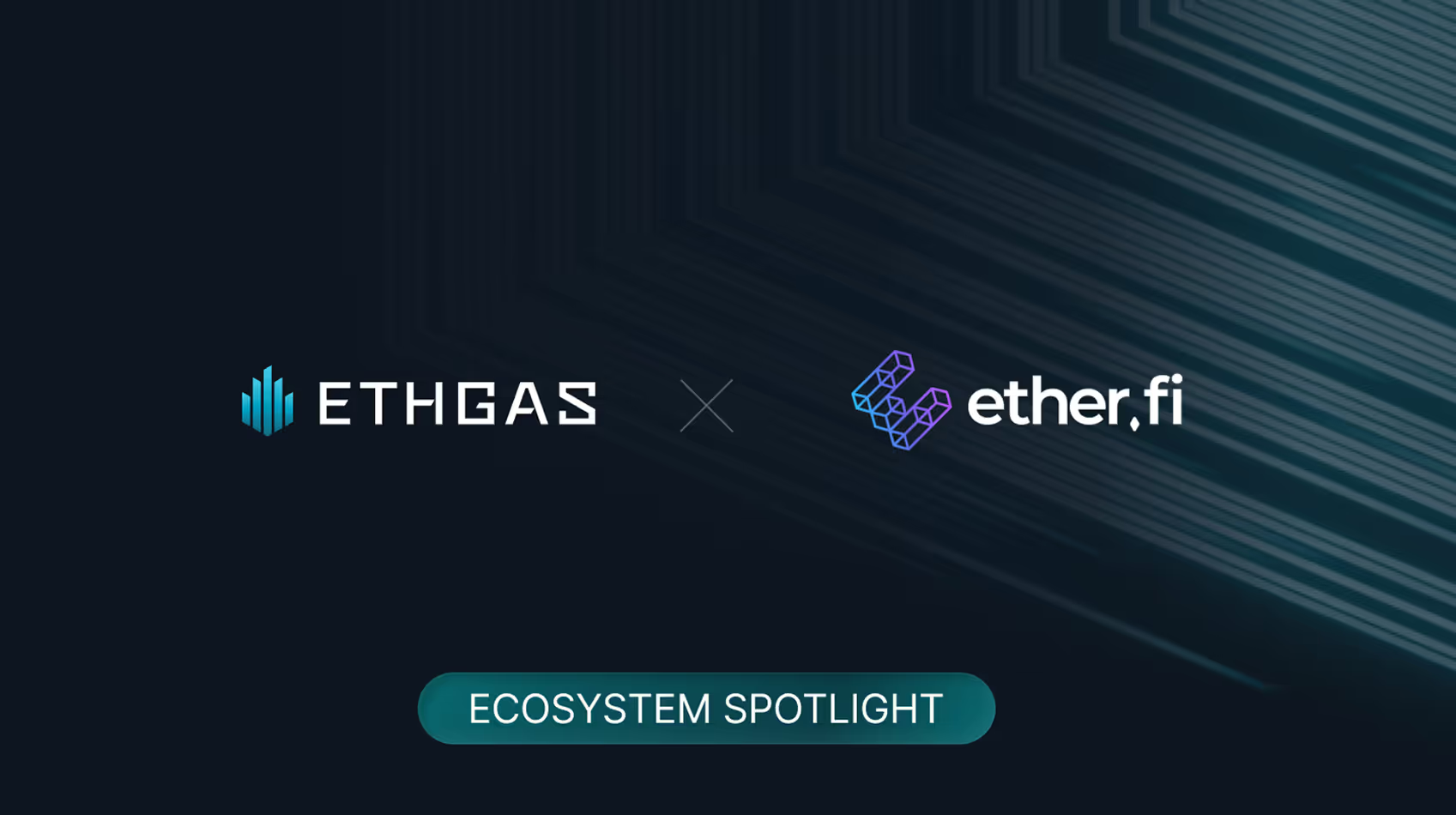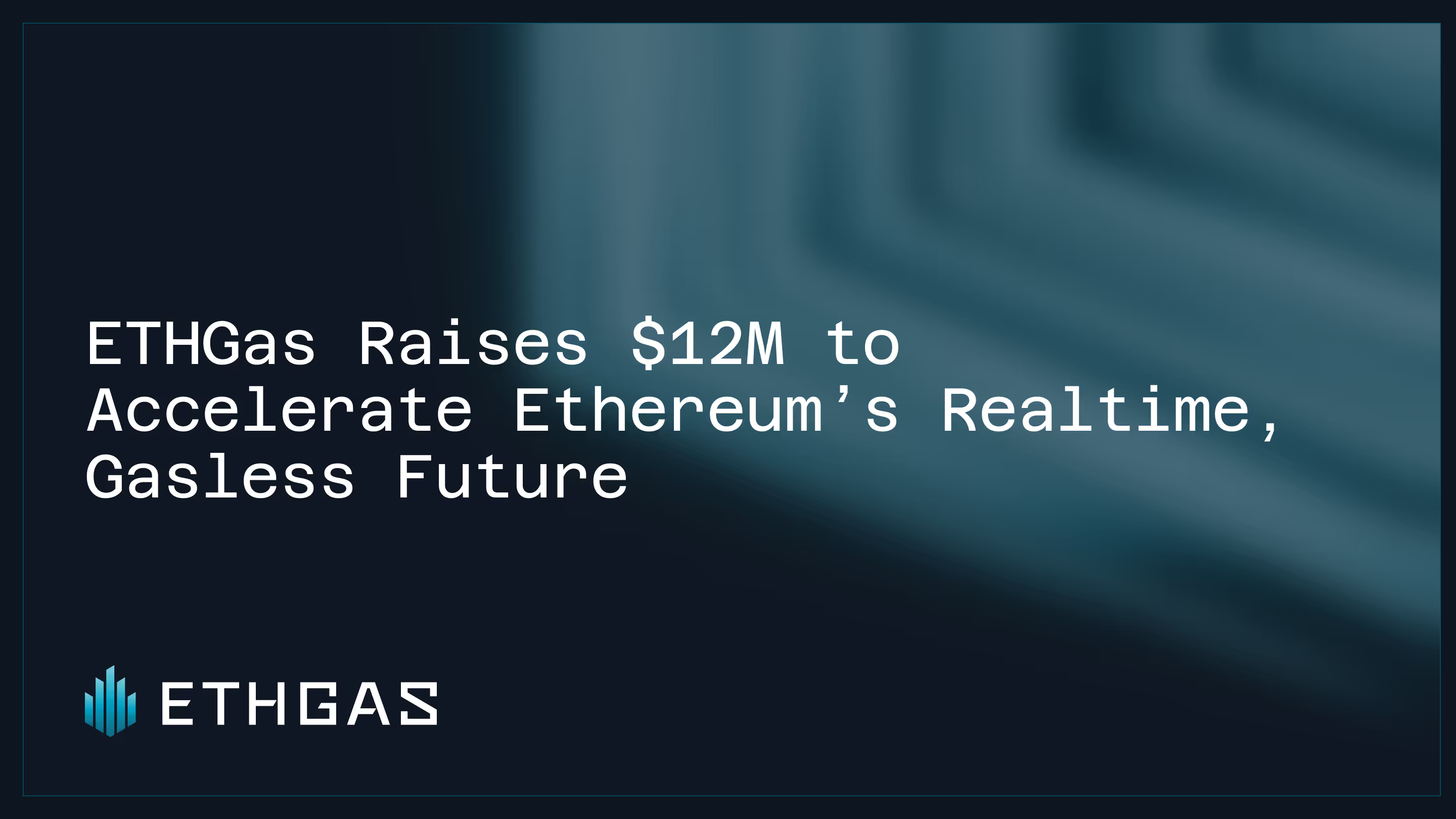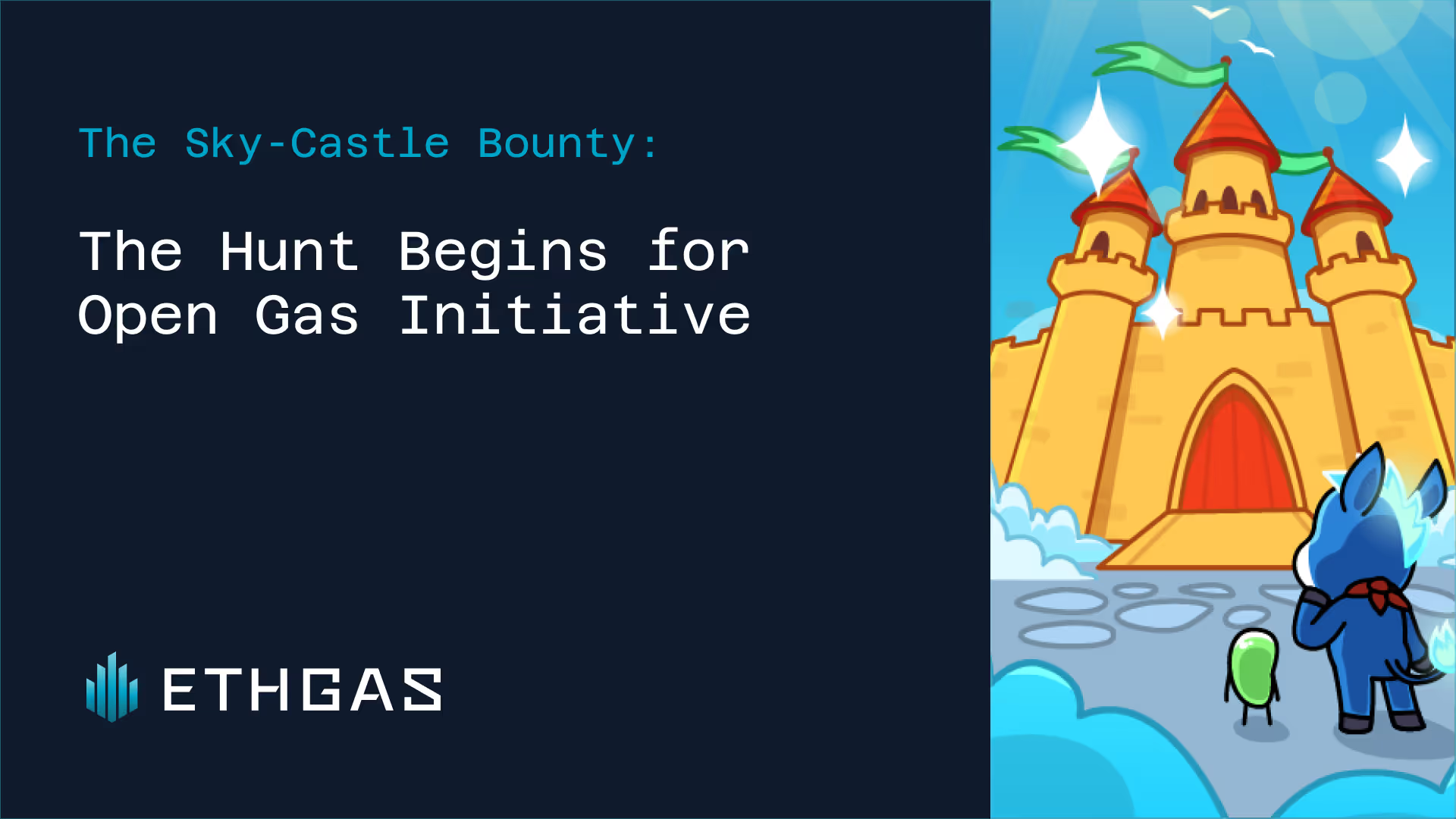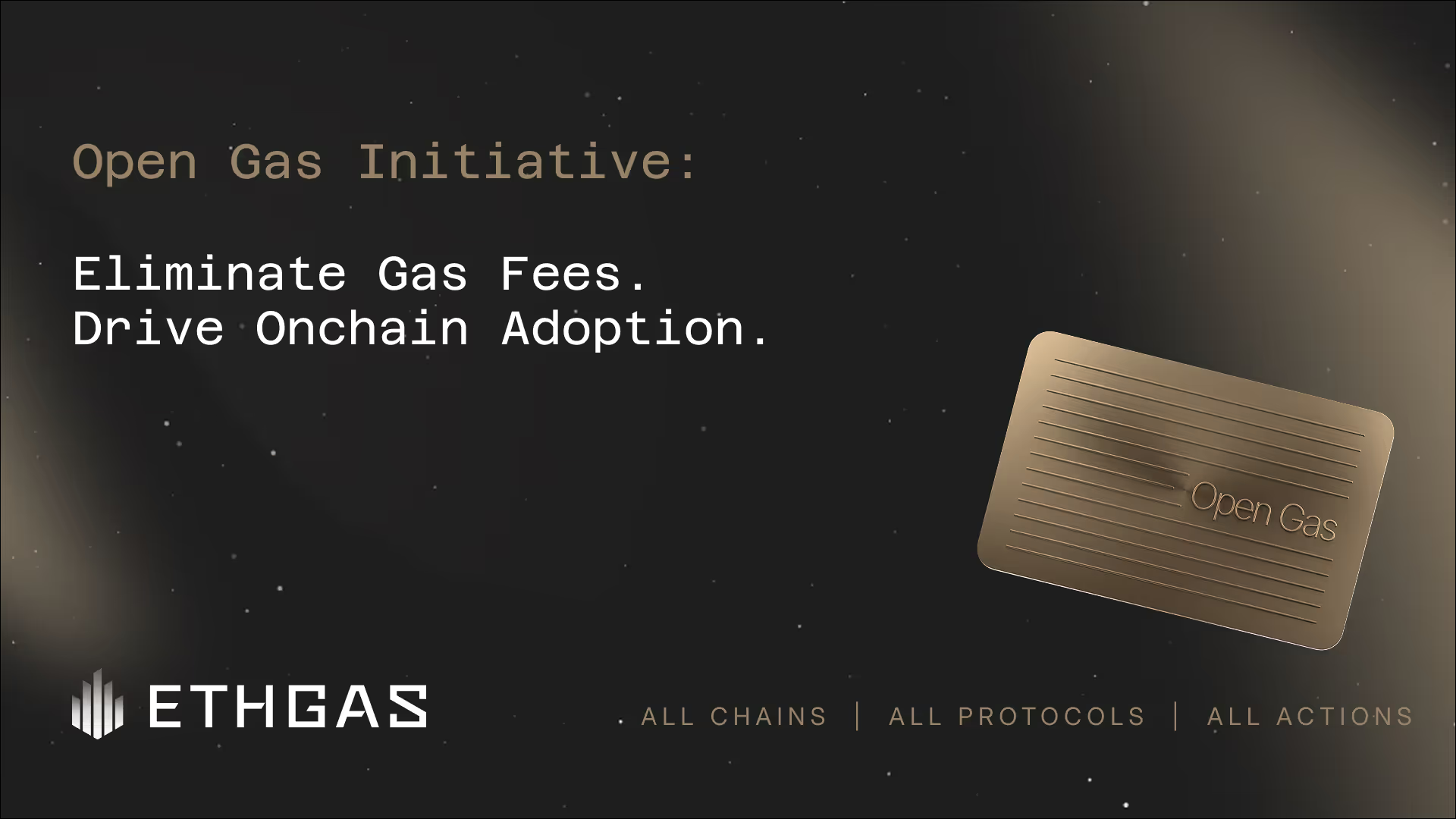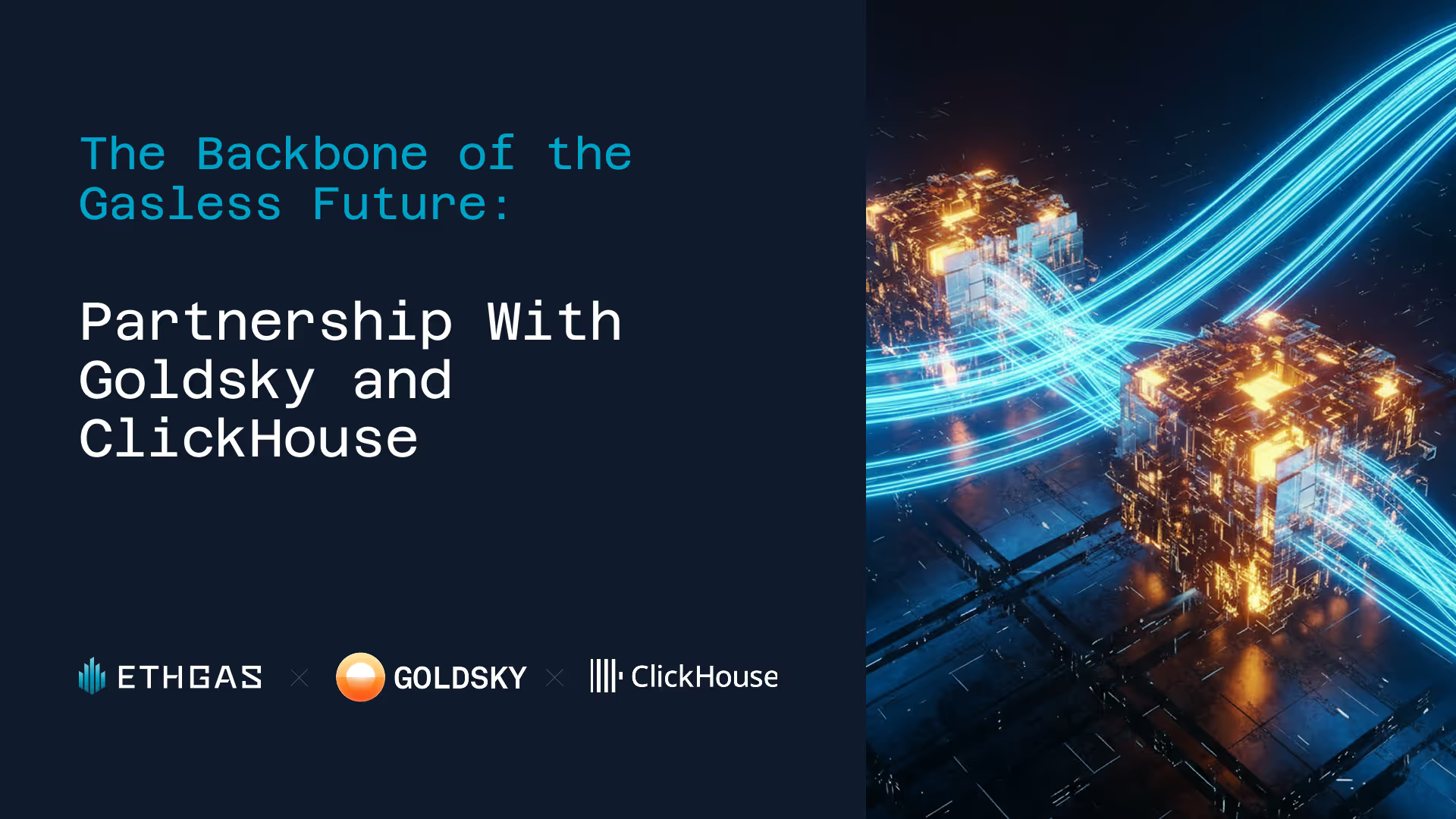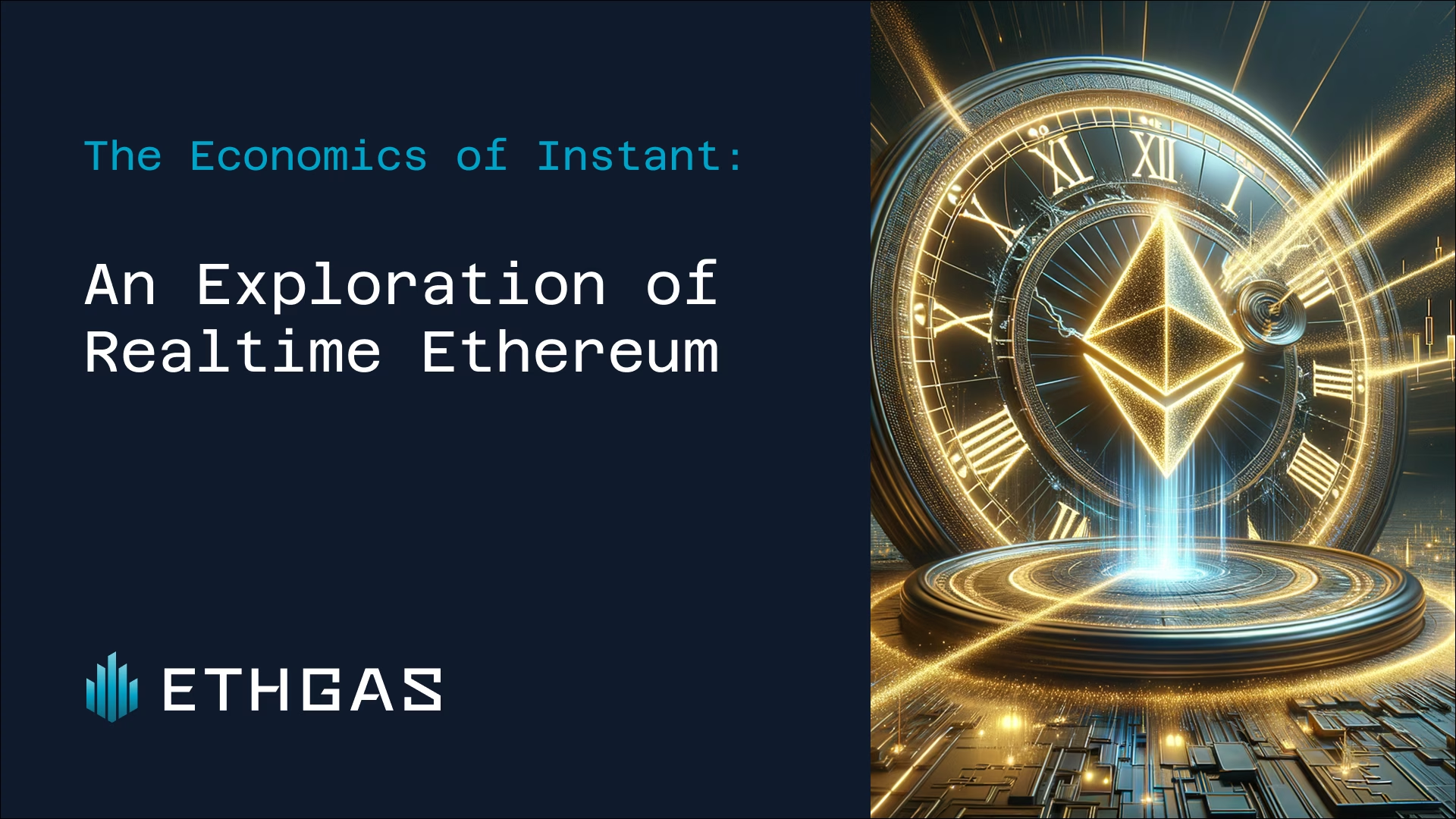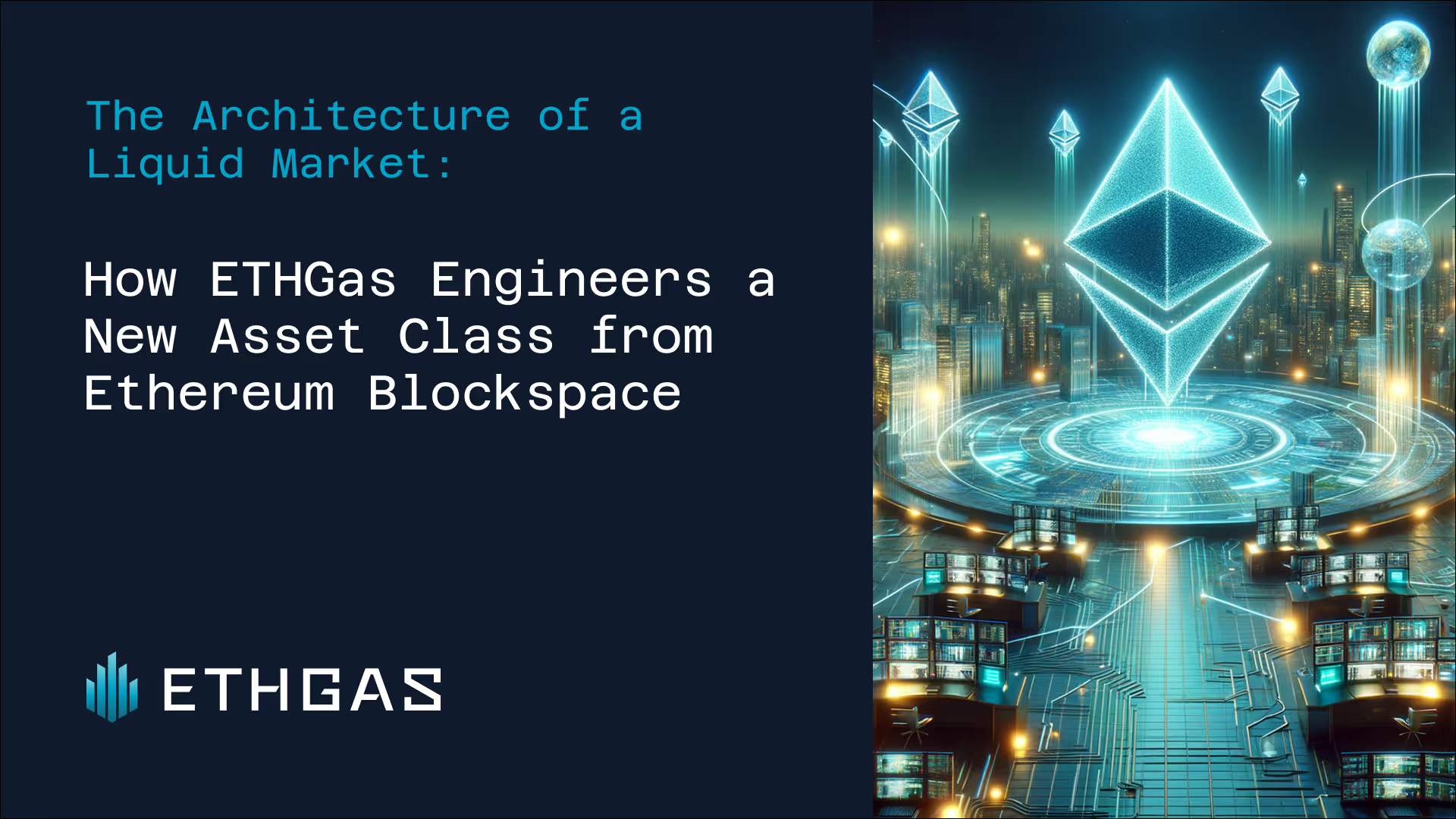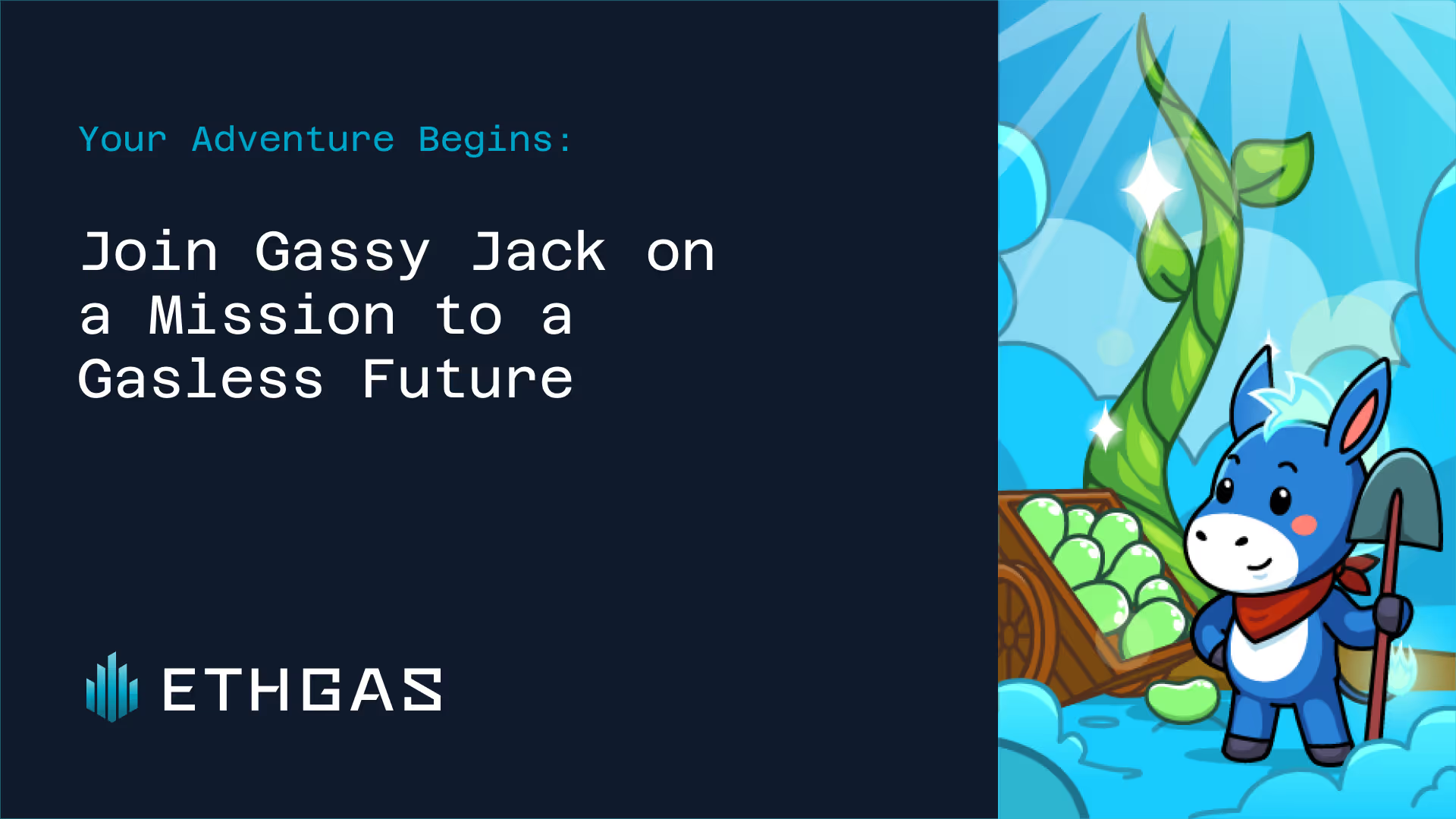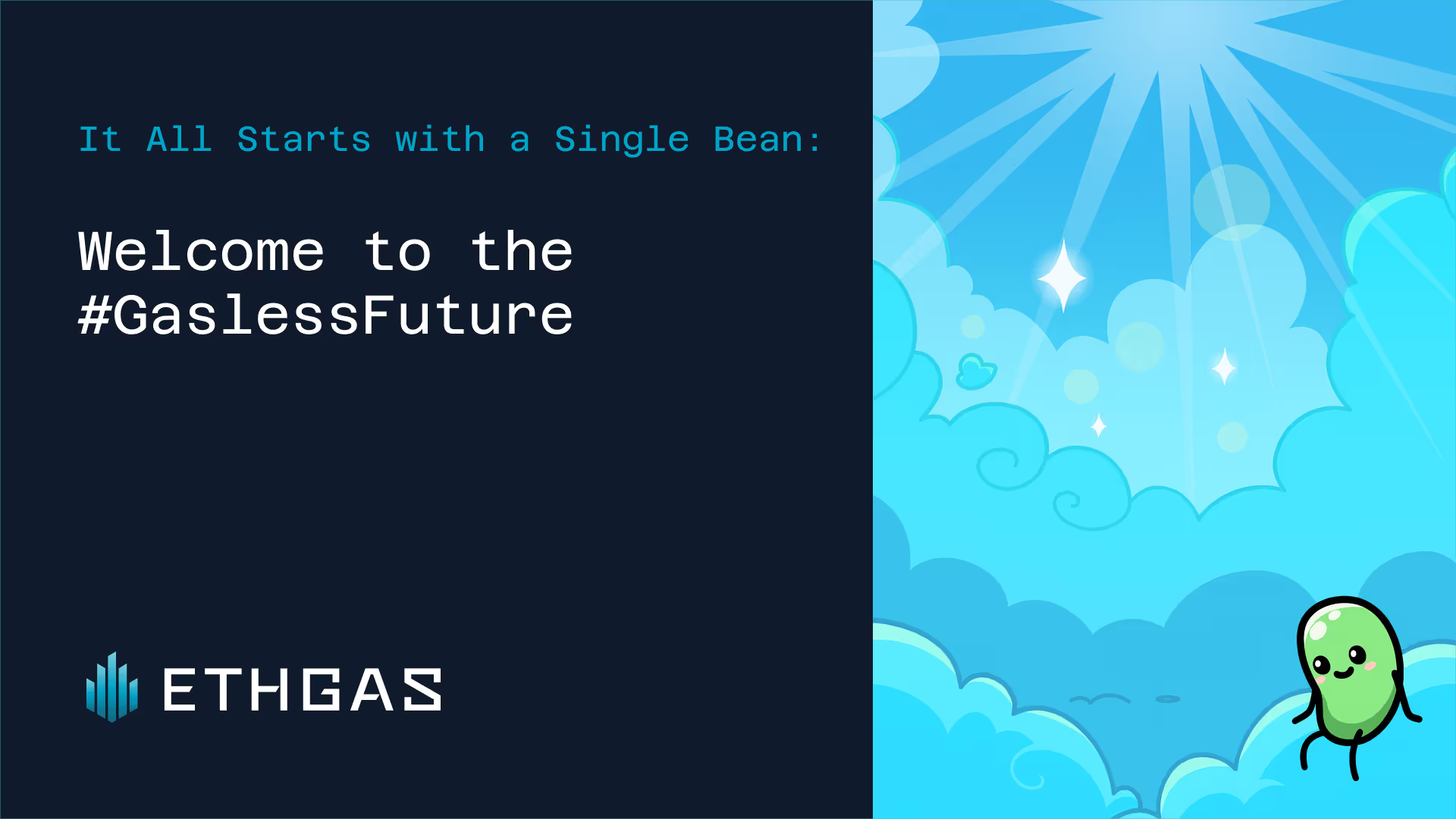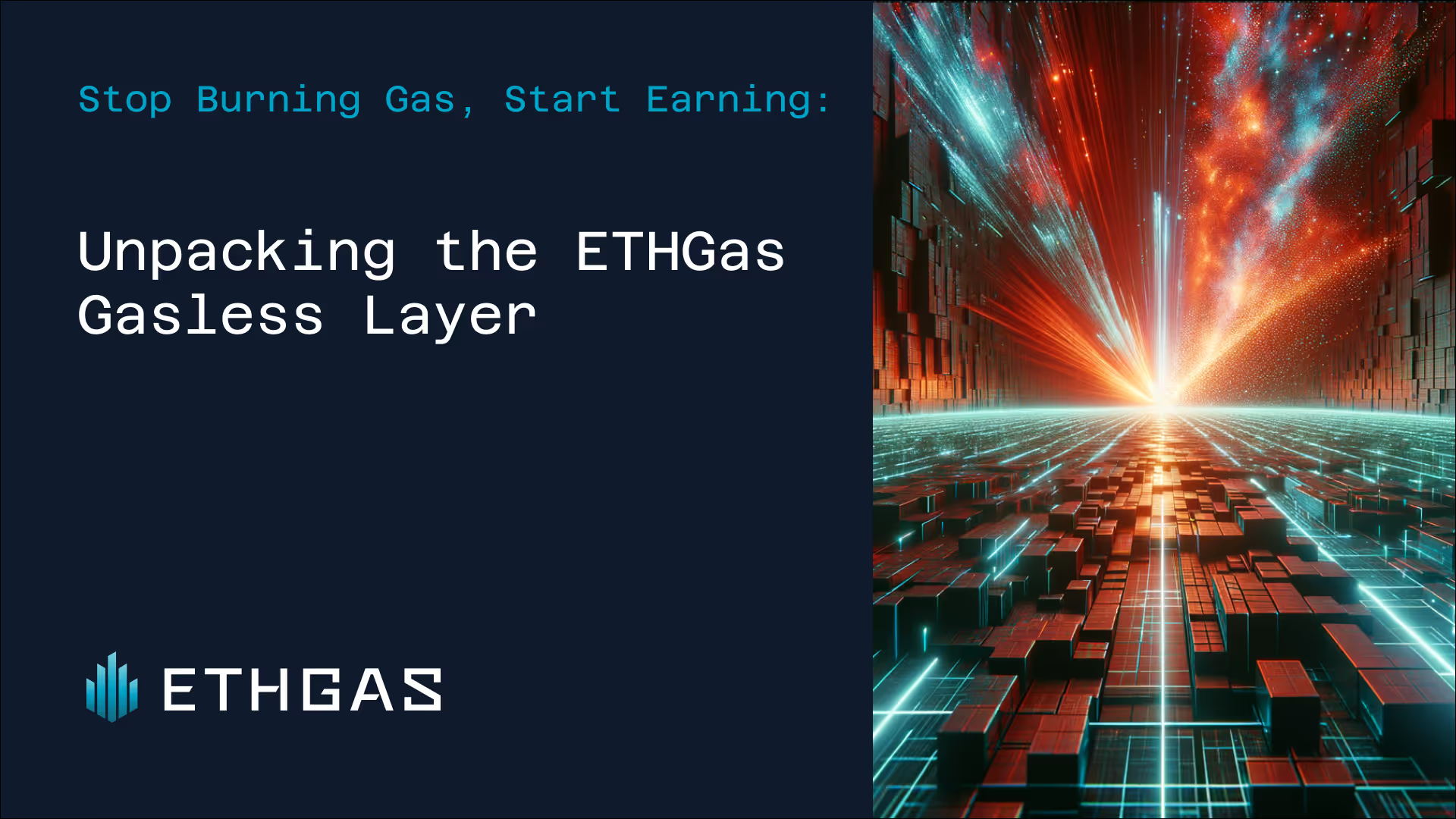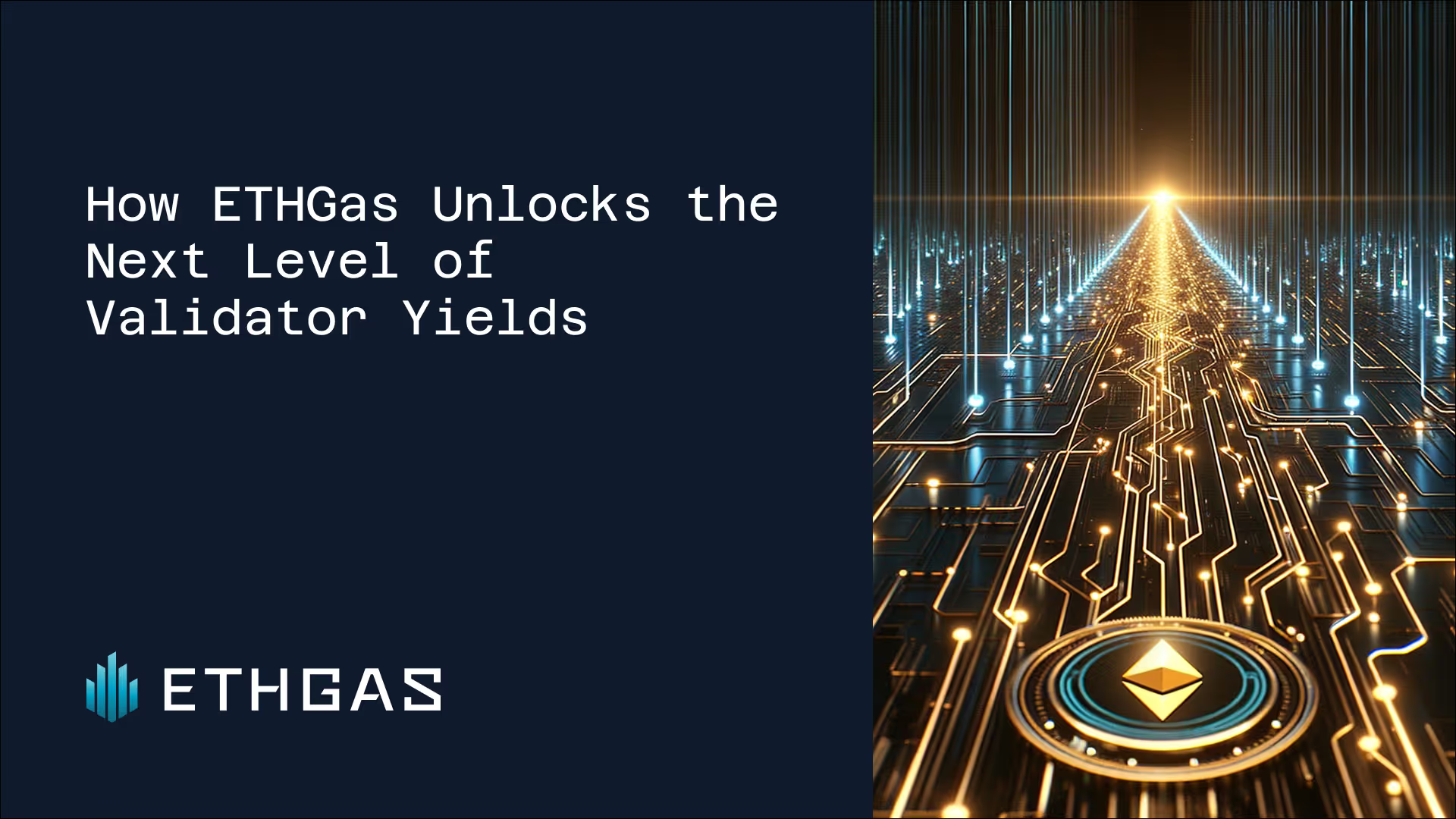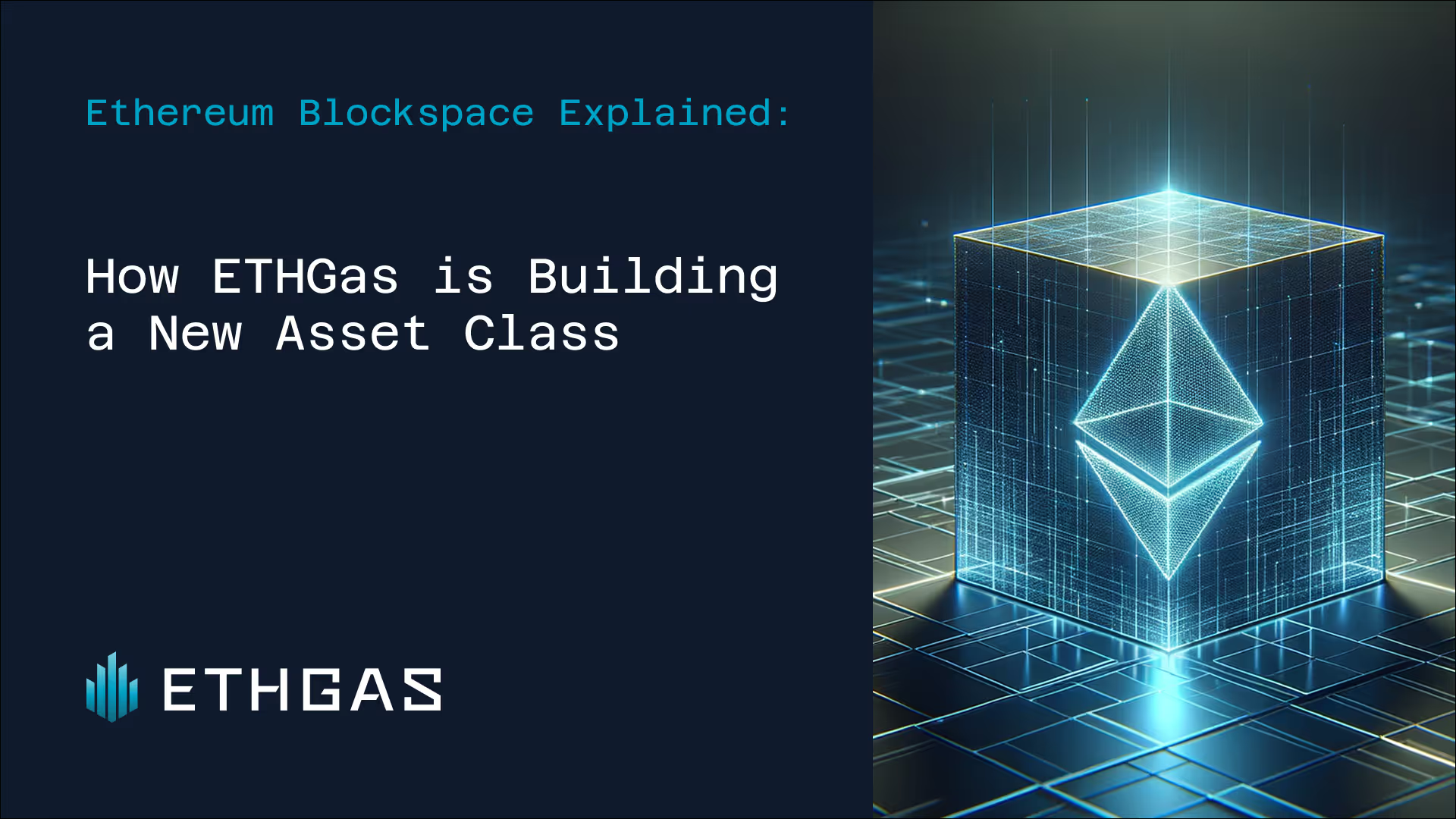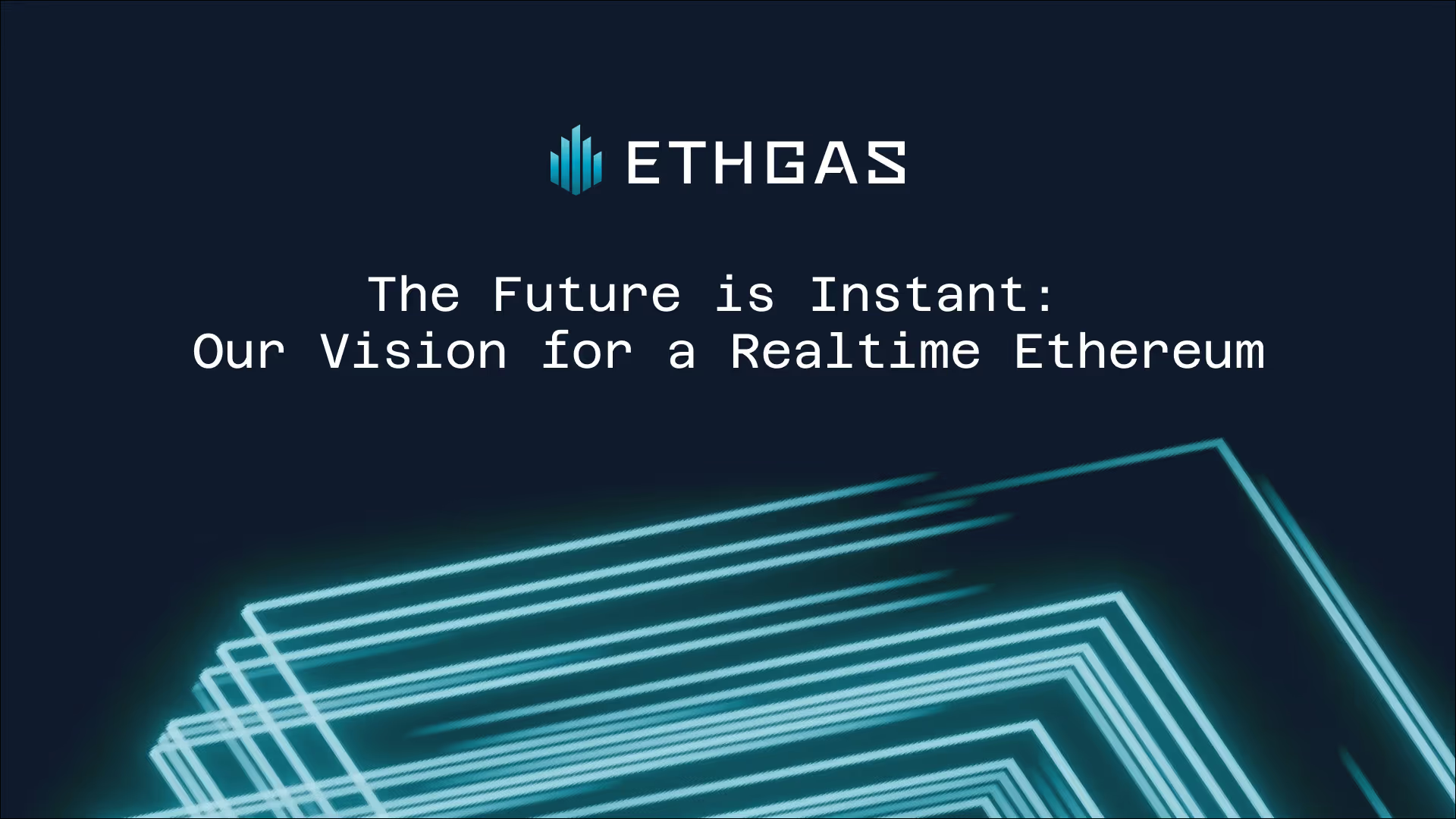How ETHGas works with Commit-Boost to boost APYs
Gas is the fabric that binds blockchains together but the basic or ‘vanilla’ assumption that one-size, or one-type, fits-all has run its course. While this assumption may have worked in the earlier days of proof-of-stake, today, both the validators and end-users of blockchains are so diverse requiring different instruments to express their broad set of needs and wants. Our Vision has been to accelerate the future of Ethereum. Our Mission was to create different types of gas for these diverse players providing an enhanced user experience and a richer ecosystem for all.
We’ve been hard at work the past months and years and as we start to go live on mainnet, we are excited to now start spreading the word.
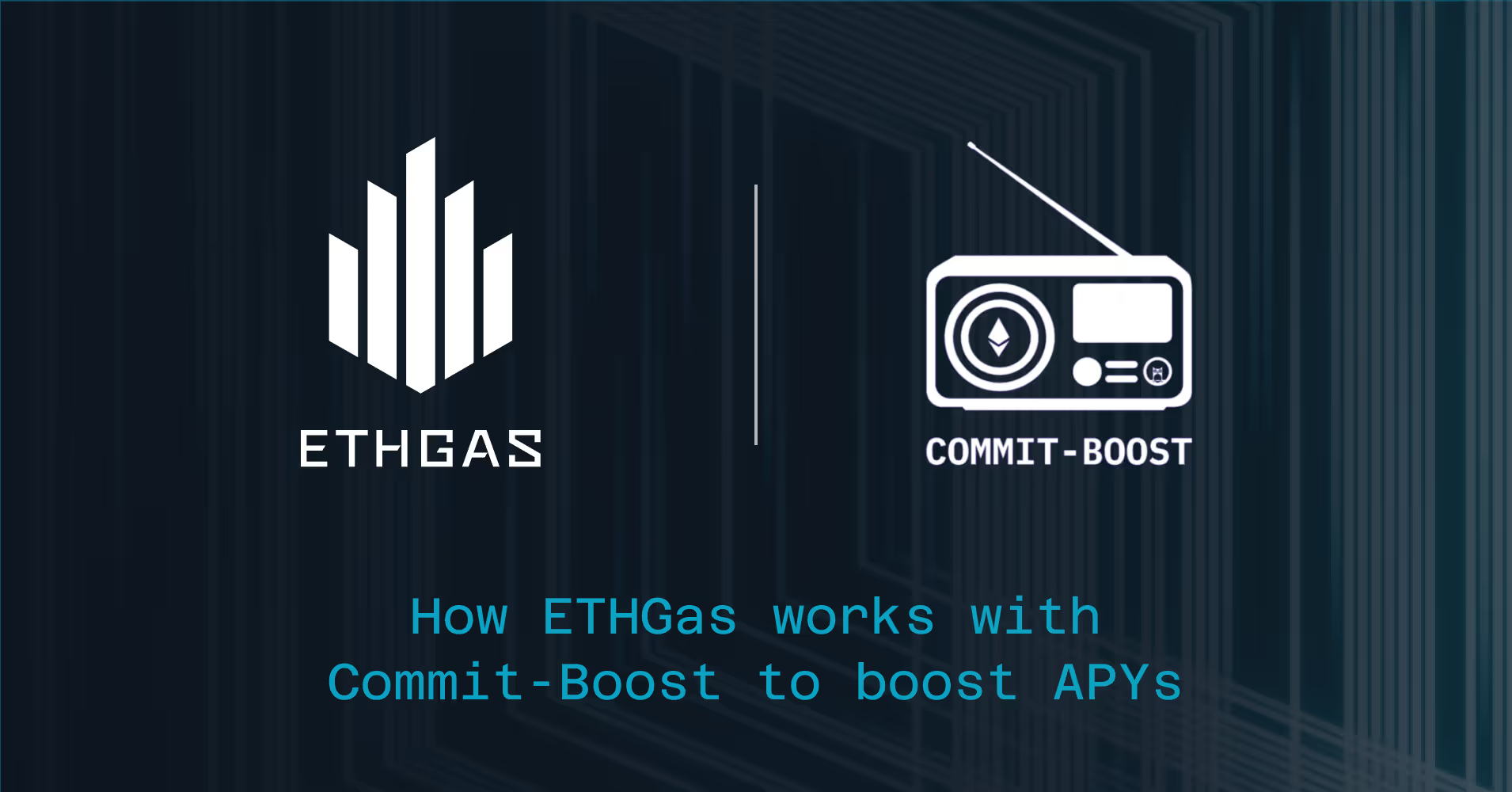
Background
ETHGas was conceived with the idea to bring Wallstreet and fixed income markets to Ethereum. We started this journey by looking at the block production process - who are the players, what are their motivations, what are the risks, and most importantly, what should we be optimising for? Through this research, we started to realize that Ethereum blockspace and construction in some ways was very similar to what we had historically seen in traditional markets. Further, while we could still bring Wallstreet and fixed income markets to Ethereum, there was an opportunity to introduce new products to Ethereum’s blockspace markets. This would not only bring a broader set of participants around price discovery of blockspace, but give validators an opportunity to provide accretive services to Ethereum’s users. These services we call proposer commitments and are what have been driving forward at ETHGas for the last year.
Proposer Commitments
Proposer Commitments are an emerging, but fast-evolving area where Validators can change the way their block is currently constructed to provide services to the end users of Ethereum. Currently, the most popular Proposer Commitment is where a validator pre-sells, or pre-commits to performing some type of action within an upcoming block. There are a number of considerations to these however, namely:
- What type of commitments do they offer?
- How do they offer or source these commitments?
Common types of commitments include:
- Inclusion Preconfirmations or Guarantees: The most basic type of commitment where the Validator agrees to include a certain transaction (tx) or bundle into their block
- Execution Guarantees: Similar to the above, but with the added benefit of requiring a specific result - that is, for a bundle or sequence of trades to run and not fail, or alternatively, return a profit of a given amount.
- Sequencing Rights: Here the validator enables a specific party or entity to sequence part or all of the block, taking into account any and all relevant transactions, as well as any other commitments made.
For a broad look at the landscape, consider watching this Youtube video by our Founder, Kevin: https://www.youtube.com/watch?v=8-oblpkvinA
The above definitions are generally agreed upon, and while Execution Guarantees can be quite broad in scope, questions arise over technically just how these commitments are offered or sourced. Enter the Gateways:
Gateways
Validators are experts at infrastructure, but they’re (at least currently) meant to be unsophisticated with technical limitations (and social desires) preventing them from taking on much more responsibility. This, and taking into a vast design-space for proposer commitments, most designs are embracing the PBS style market structure where the validators delegate to an external party. For Proposer Commitments, that role is the Gateway who works on the Validator’s behalf taking over all the heavy-lifting.
The Gateway’s work involves designing the commitment product, sourcing the commitment buyer, determining the price, and integrating such a dynamic seamlessly into the current PBS pipeline. The Validator need only update their validator sidecar client to accommodate the commitments from the Gateway accordingly. Which client, or software, do they use however?
Commit Boost
While each Gateway may have a similar or different product suite - if each Gateway has a different client, this introduces fragmentation increasing both testing time and risks for the Validators. This is where Commit-Boost comes into play.
Unlike typical operating systems where there is little choice and vendor lock-in, Commit-Boost works like an app-store, where any developer and team can create Apps or ‘modules’ (aka a Proposer Commitment or service) for Validators, and where each module operates largely independently from one another. This allows validators to offer Proposer Commitments but with low switching costs and using one standard to opt into that commitment / service. In summary, Commit Boost is a neutral, not-for-profit sidecar developed for Validators to express more agency, and in particular, make Commitments around their blockspace.
You can learn more about, and contribute to Commit Boost here: https://github.com/Commit-Boost
ETHGas Commit-Boost Module
This begs the question, how does ETHGas work with Commit-Boost? ETHGas is a supporter of Commit-Boost and for Validators looking to enhance their APYs, you may connect to us through our module located here:
https://github.com/ethgas-developer/ethgas-preconf-commit-boost-module
There are three main aspects:
- cb_pbs: This serves a similar purpose to MEV-Boost. This is the default or fallback within Commit Boost
- cb_signer: This securely generates signatures from the validator BLS private keys
- cb_ethgas_commit: This requests signatures for registration to the ETHGas platform from cb_signer, where the signatures are then sent to the ETHGas Exchange via REST API.

For more information on the configuration, please visit the ETHGas developer on Github:
https://github.com/ethgas-developer/ethgas-preconf-commit-boost-module
Through the ETHGas module, Validators are able to access seamless high-fidelity Proposer Commitments such as sequencing and a blockspace futures marketplace. These can be used as mechanisms to increase yield, better manage their businesses and in the end offer better and more competitive services to the end users of Ethereum.
To learn more about ETHGas and the community around us, check out our latest event at ETHDenver in Feb 2025 bringing together Researchers, Builders, Validators, Traders, and more: https://lu.ma/ETHGasDenver


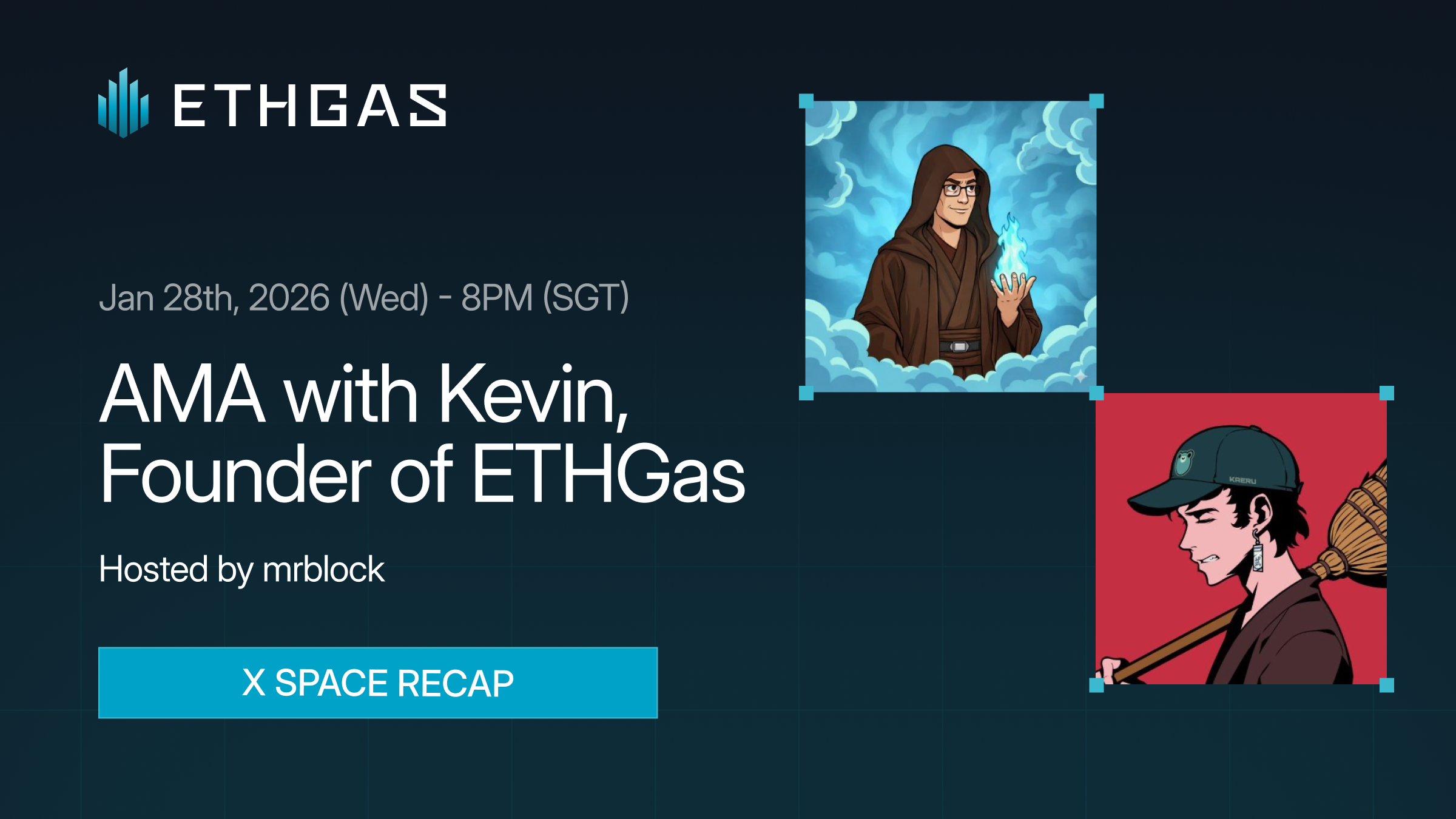
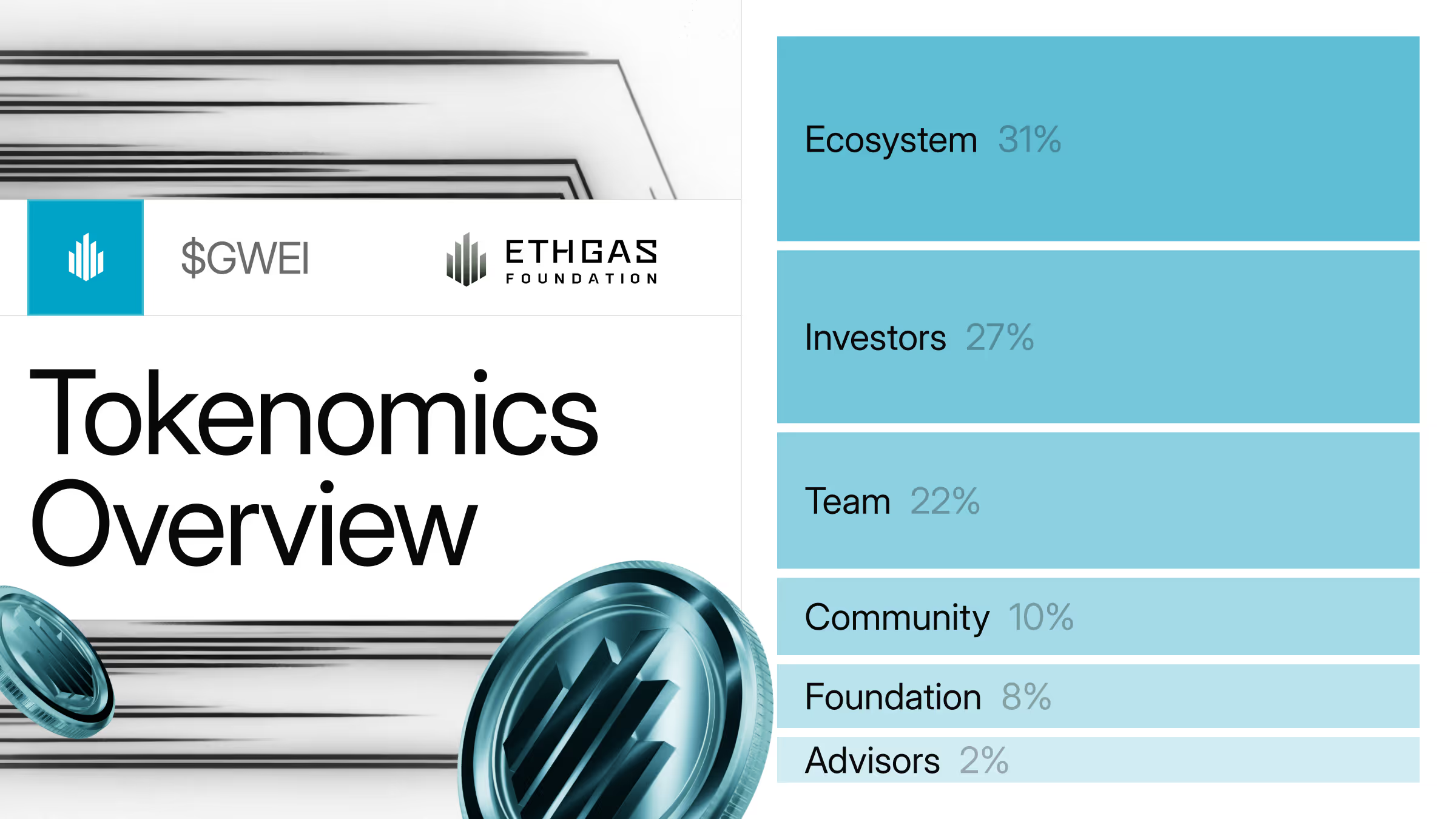

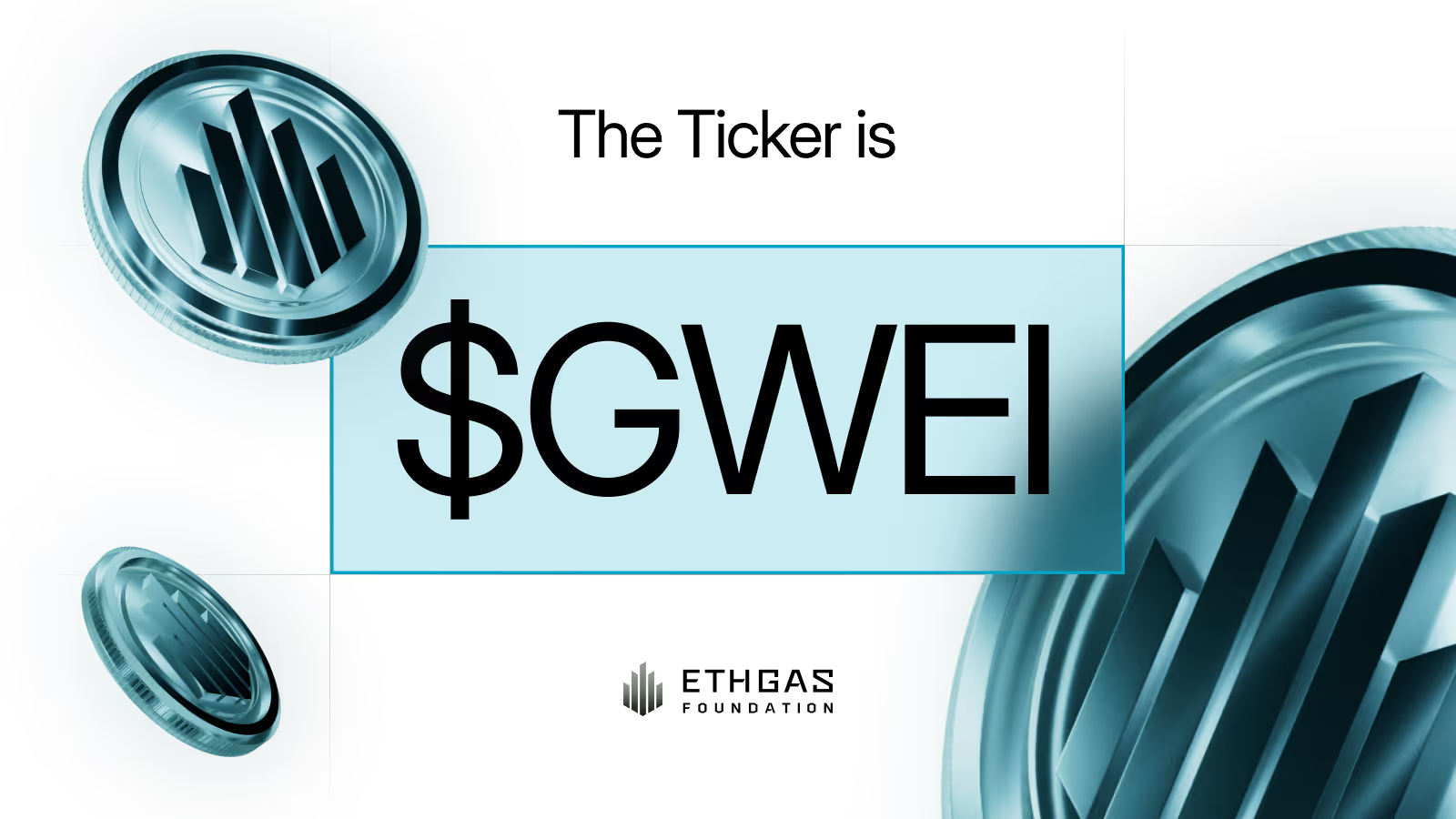
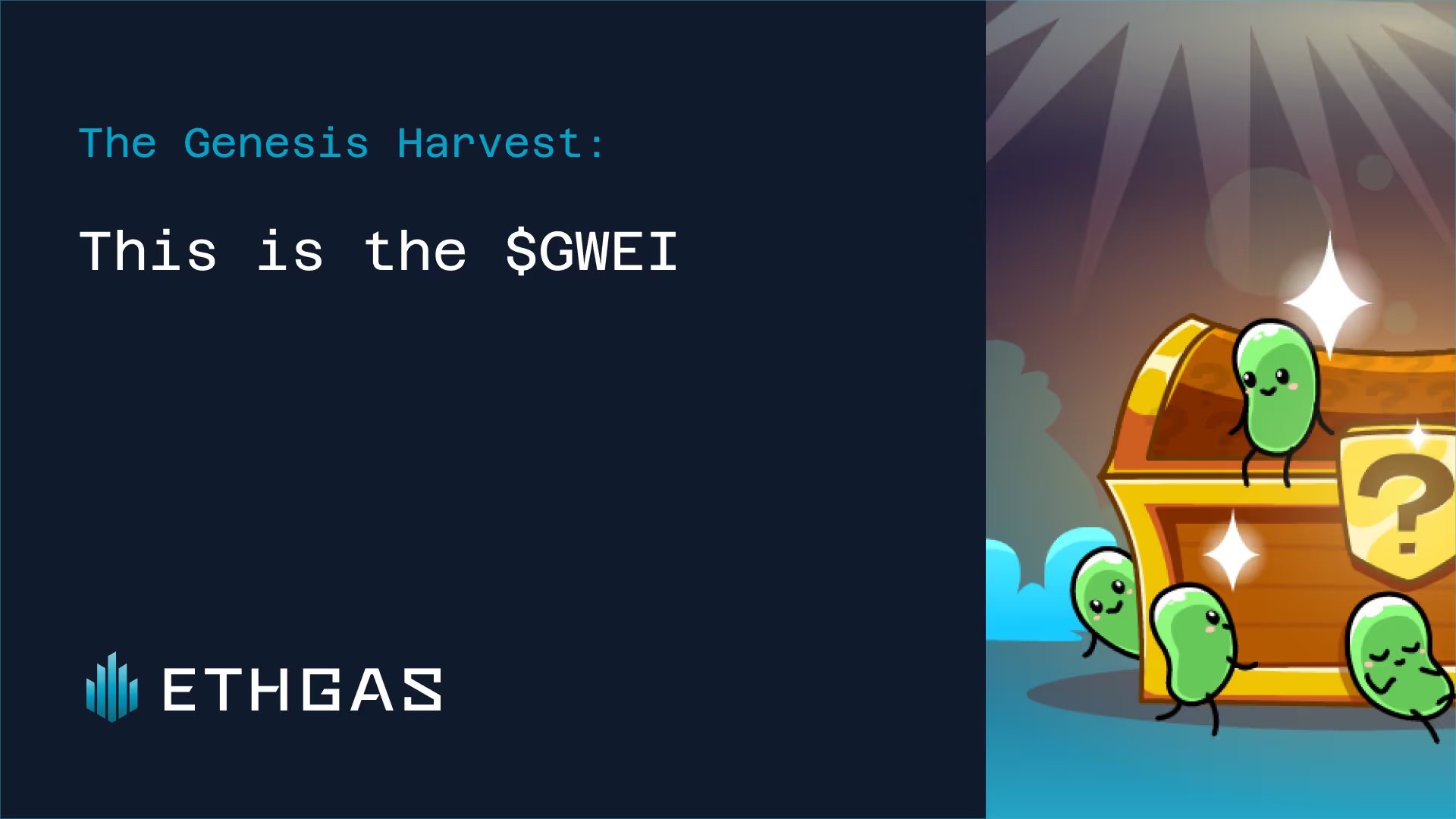

.avif)
